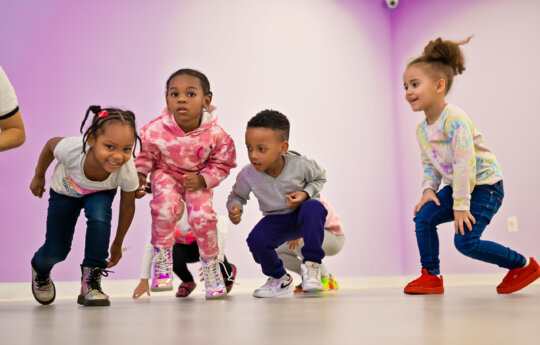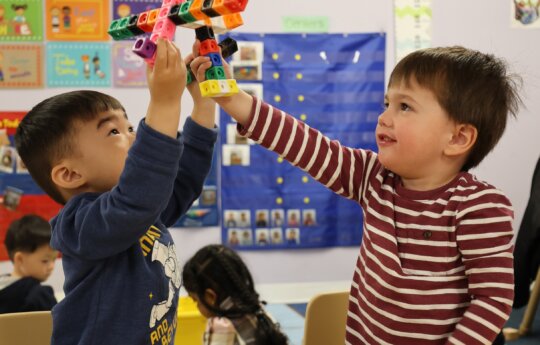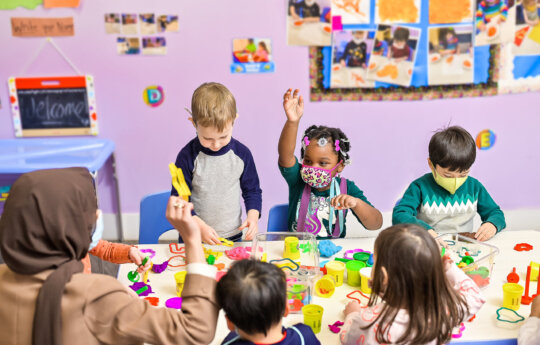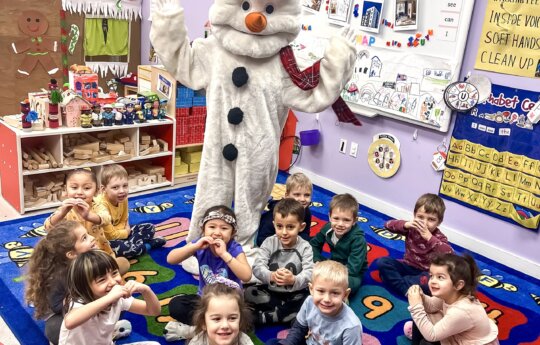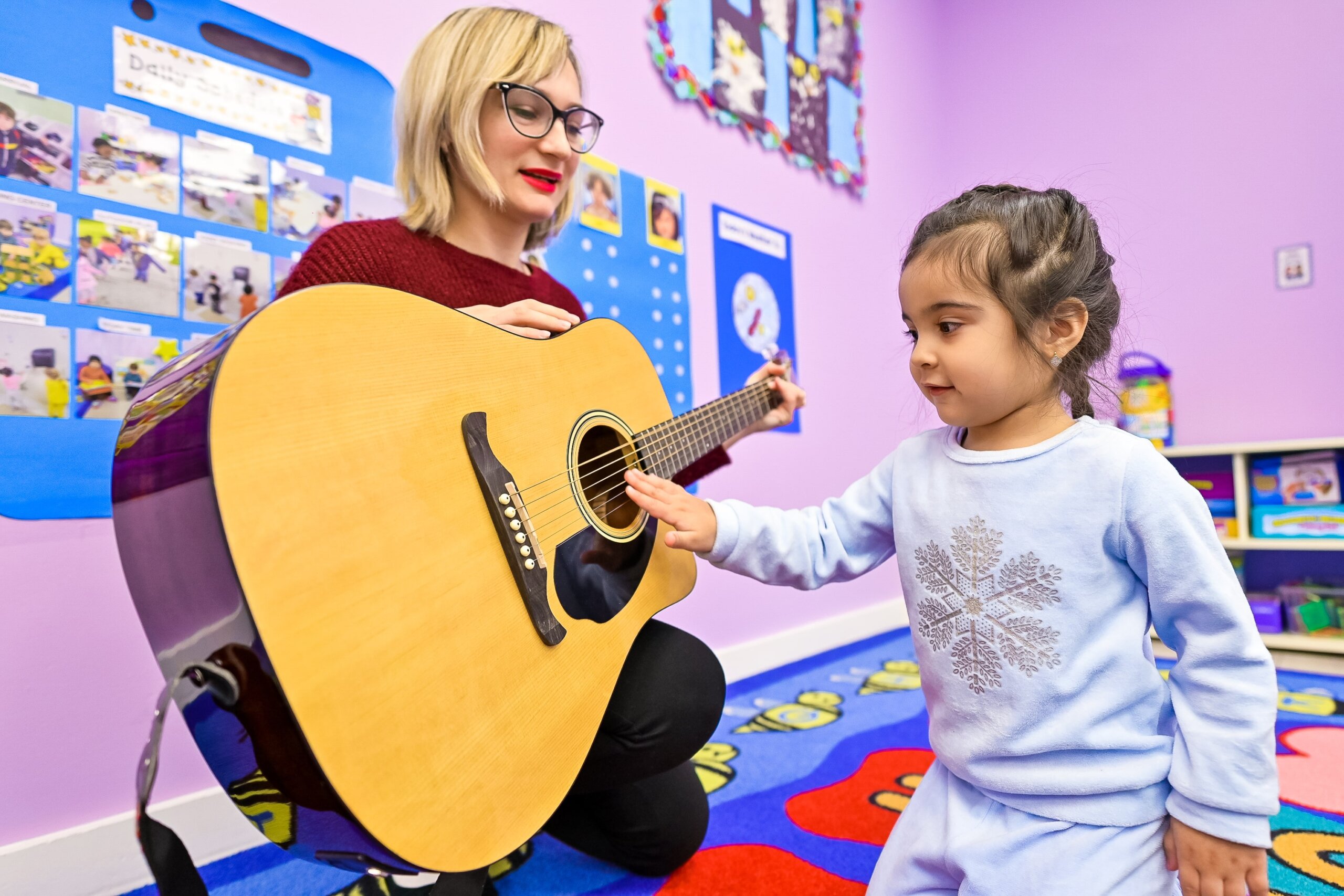
Incorporating music activities for kids, from toddlers to preschoolers, is not just about entertainment. It’s a powerful tool for developmental growth, fostering an environment rich in learning and creativity. Engaging in music activities and games introduces children to a world of rhythm & movement, enhancing their cognitive, physical, and sensory development.
Children improve their language skills, boost their mathematical understanding, and develop a stronger sense of coordination and balance through toddler music games. Music paves the way for learning, making every note a stepping stone to discovering their potential.
Dive into the rhythm and fun with our curated list of the top 20 movement and music activities for kids. Take on a journey that enhances a child’s development in many ways!
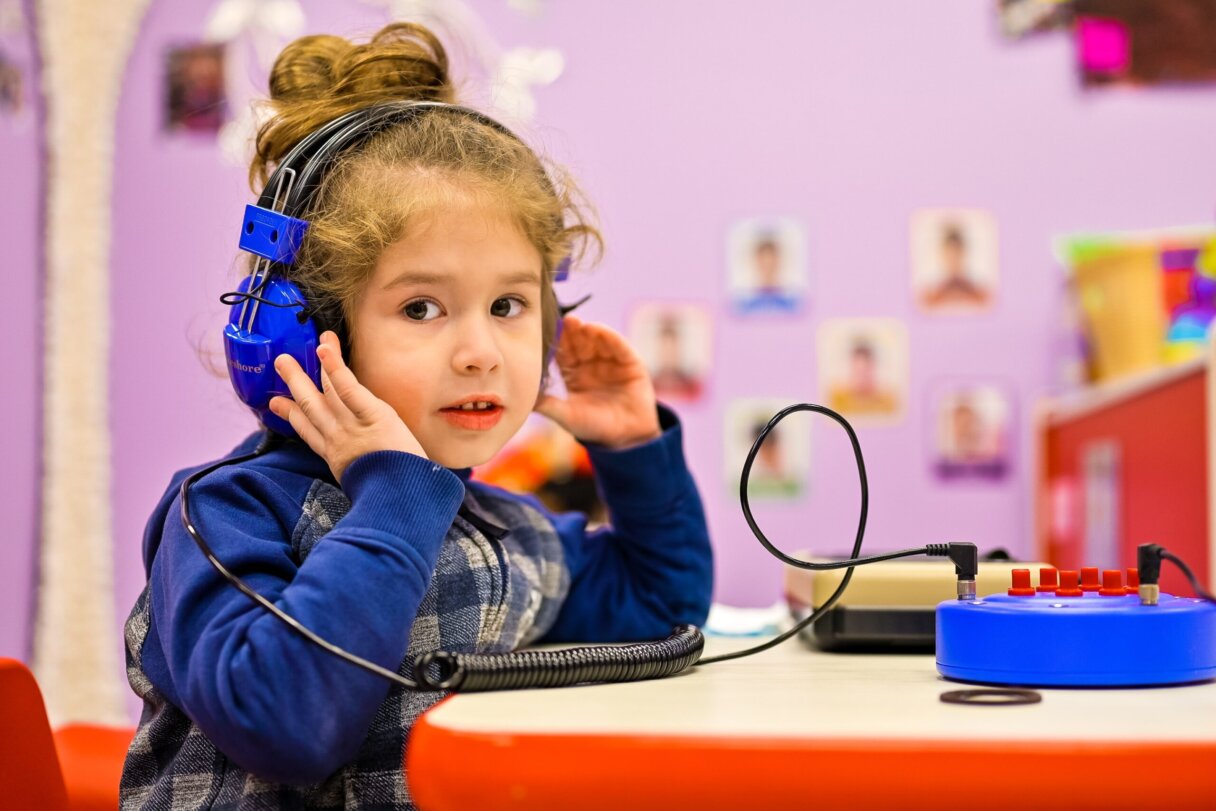
Age-appropriate music & movement
Children’s ability to engage with and learn from music activities evolves as they grow. From the soothing lullabies sung to a newborn to musical games played by preschoolers, each stage of development brings new opportunities for exploration and learning through music.
This list provides a variety of music activities tailored to the developmental stages of children at-home / daycare, ensuring that each activity enriches their growth in holistic ways.
Ages 0–1
- Lullaby Time: Calm lullabies and soothing, rhythmic music to keep babies calm and interested.
- Shaker Play: To develop rhythm awareness, play with gentle rattles or shakers and simple clapping games.
- Gentle Movement: Gentle rocking or guided movement with soft, textured instrument crafts (such as drums covered in cloth).
Ages 1–2
- Call-and-Response: Interactive songs that contain actions to promote involvement, such as “If You’re Happy and You Know It.”
- Scarf Dance: Music and movement exercises that explore rhythm and flow with scarves or ribbons.
- Simple Rhythms: Maintain a steady beat by playing with homemade instruments like bottle shakers.
- Dynamic Songs: Songs that feature well-coordinated motions to improve motor development and listening skills.
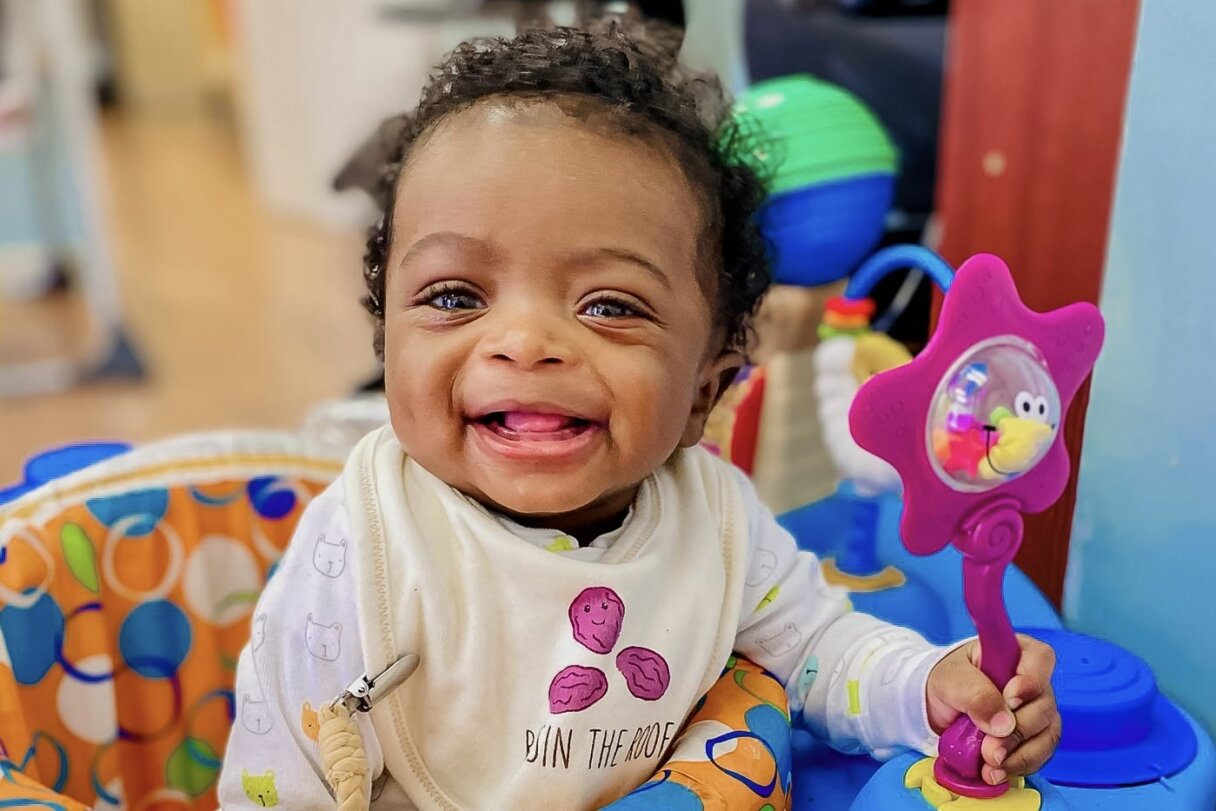
Ages 2–3
- Freeze Dance: Dance events featuring a range of musical genres where kids pause and resume dancing to the music.
- Balloon Bop: Amusing movement exercises that promote rhythm and coordination with balloons.
- Sound matching: Practice listening and matching sounds by participating in sing-along sessions with simple tunes.
- Pattern Claps: Simple games that use clapping or tapping to identify rhythms.
Ages 3–4
- Sing-Along Story: Using narrative songs to enhance language and creativity, this type of storytelling is musical.
- DIY Instrument: Make basic instruments at home to experiment with various high-, low-, and fast-speed sounds.
- Rhythm Patterns: To improve rhythm recognition, practice tapping and clapping patterns.
- Obstacle Course: Music-driven obstacle games embrace movement and listening (such as “Freeze Dance” challenges).
Ages 4–5
- Musical Chairs Twist: Group musical games like “Pass the Sound” or variations on musical chairs that promote collaboration.
- Simple Notation Games: Engaging activities that introduce fundamental music symbols and their correspondences with sounds.
- Ensemble Play: Children play instruments (such as shakers, drums, and xylophones) in groups while singing.
- Tempo & Dynamics: Imaginative movement to music that explores loud or soft, slow or fast sounds while expressing a range of emotions and narratives.
Music games for kids at home & in daycare
Activities and music games for kids are a fun approach to improve their coordination and motor abilities, which promotes both physical and cognitive development. Maintaining a harmony between play and quiet time is also crucial because it prevents toddlers from becoming overstimulated. And allows them to remain attentive and controlled.
1. Animal Walk Parade:
Have the toddlers mimic different animals’ walks (e.g., hop like a frog, waddle like a penguin, crawl like a bear) to the sound of music. This activity enhances imagination, teaches about animals, and improves gross motor skills by encouraging various movements.
2. Musical Statues
Play music and encourage toddlers to dance in any way they like. When the music stops, they must freeze in place until the music starts again. This game develops listening skills, promotes physical activity, and helps with self-regulation as children learn to stop on cue.
3. Balloon Bop
Keep a balloon in the air by gently tapping it up while music plays. This simple yet fun activity improves hand-eye coordination, encourages gentle play, and teaches toddlers about cause and effect as they learn how different forces affect the balloon’s movement.
4. Rhythm and Drumming
Provide toddlers with drums or makeshift drums (like pots and wooden spoons) and play a variety of musical rhythms. Encourage them to beat the drums in time with the music. This activity promotes auditory skills, rhythm recognition, and motor coordination while introducing them to basic musical concepts.
5. Scarf Dance
Give toddlers light scarves or ribbons to hold and wave around as they move to music. This activity allows them to explore movement creatively, enhances fine motor skills as they grasp and manipulate the scarf, and teaches them about the flow and direction of movement.
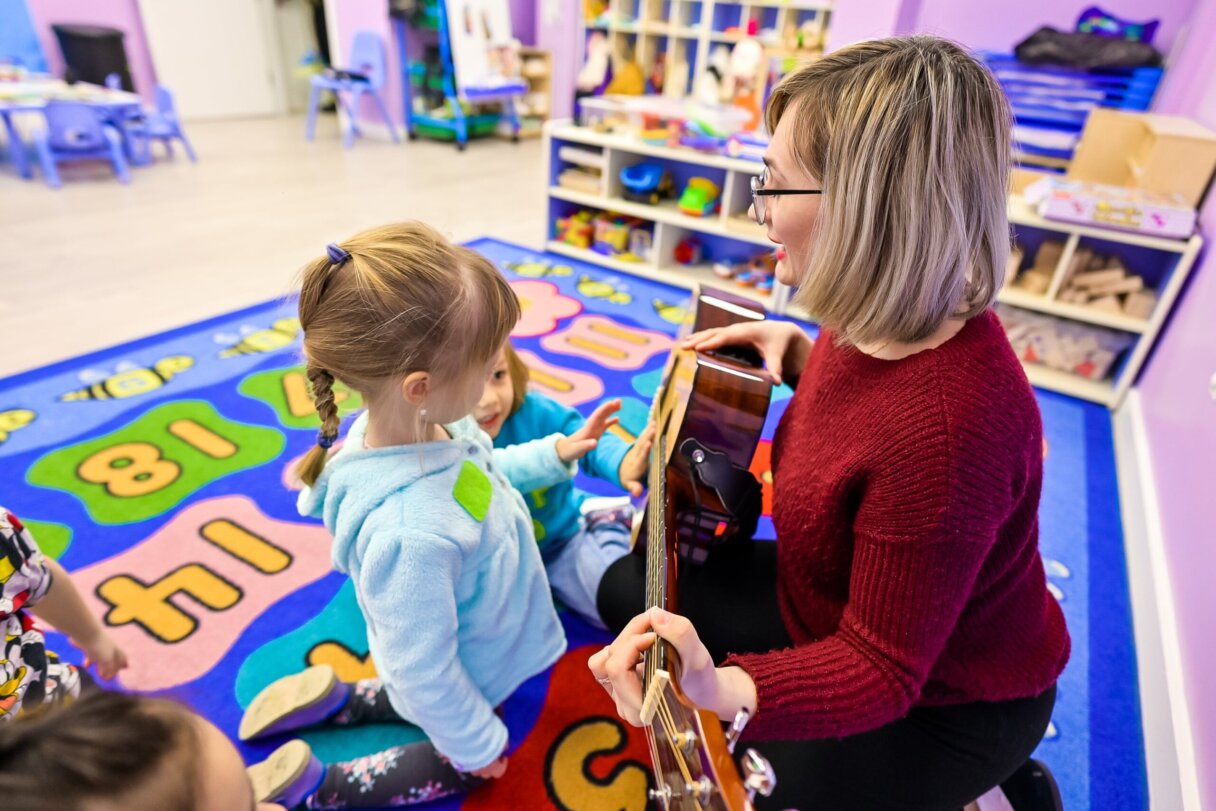
Tips for teaching kids about music
Music plays a pivotal role in the development of preschool-aged children, offering them a vibrant avenue to explore creativity, enhance social skills, and develop a keen sense of rhythm and coordination. Engaging in music activities for toddlers of different ages nurtures their innate love for melody and rhythm and fosters individual creativity.
From crafting their own instruments to participating in interactive music games, preschoolers are encouraged to express themselves, learn cooperation, and build a foundation for lifelong musical appreciation. Take a look at these meticulous music activities we use at the Toddler program (1-2) to add enjoyable and instructive learning to the preschool experience.
1. Sing-Along Story Time
Integrate classic children’s stories with songs, encouraging preschoolers to sing along with parts of the story. This activity fosters literacy through music and encourages children to connect narrative understanding with musical rhythms, enhancing memory and comprehension skills.
2. Musical Chairs with a Twist
In this variation of musical chairs, children must find a new chair to sit in instead of removing chairs when the music stops. This encourages group interaction, teaches flexibility, and ensures that all children remain engaged and active throughout the game.
3. Sound Matching Game
Use various musical instruments or objects that produce sounds and have the children match similar sounds. This game develops auditory discrimination skills, encourages teamwork, and introduces children to different musical instruments and sounds.
4. Create Your Own Instrument
Provide materials (e.g., empty boxes, rice, beans, rubber bands) for children to create their musical instruments. This activity promotes creativity, fine motor skills, and an understanding of how different materials can produce various sounds. It also gives children a sense of accomplishment when they use their instruments in a music session.
5. Music and Movement Obstacle Course
Set up an obstacle course where children must move according to the music. For example, they might crawl under a “tunnel” during slow music and hop through hoops during fast music. This activity combines physical exercise with musical understanding, encouraging children to listen carefully and move in response to the music’s tempo and style.
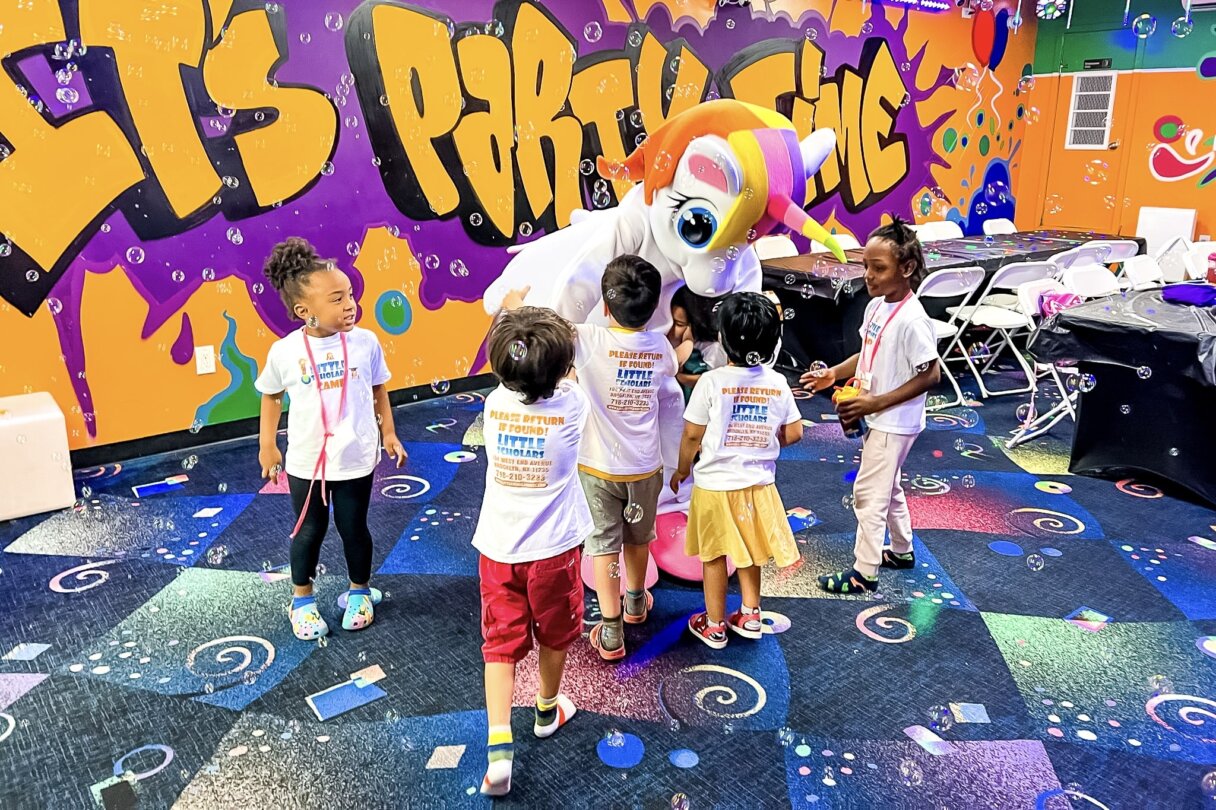
Safety & sensory guidelines
Teaching kids about music opens a world of creativity, expression, and cognitive benefits, establishing a foundation that nurtures their development across multiple domains. Music education for children can be approached through a variety of no-prep activities and resources that cater to their curiosity for learning STEM & creativity in preschool.
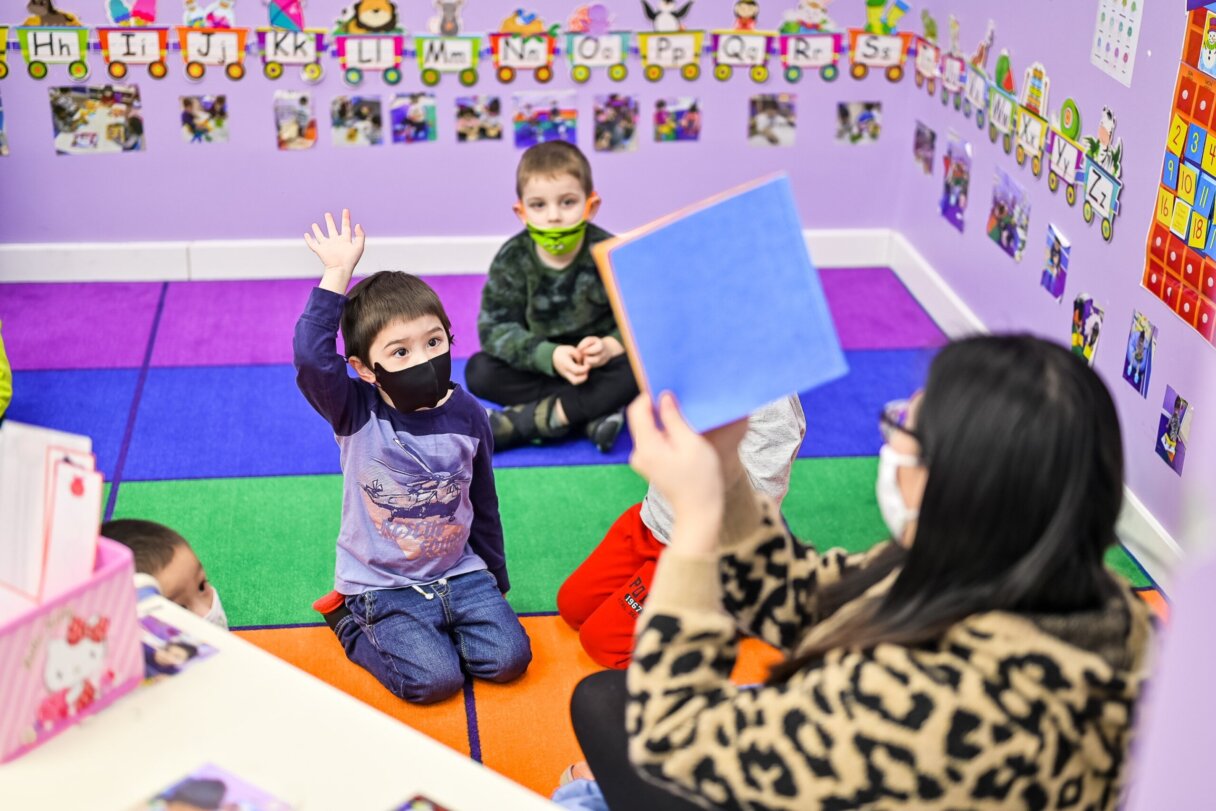
Conclusion
As we have journeyed through circle time activities and their undeniable impact on the development of children from toddlers to preschoolers, it becomes clear that music is not just an art form but a vital educational tool. Music offers a unique and joyous pathway to growth for every child, from enhancing cognitive abilities and emotional development to improving physical coordination. By incorporating the activities discussed, parents and educators can provide an environment that fosters creativity and builds skills crucial for lifelong learning.
However, to fully unlock the potential of music in early childhood development, it is essential to consider structured programs specializing in early learning. The core values of Little Scholars Daycare programs are a significant consideration for parents looking to enrich their child’s early years with the gift of knowledge.
We invite you to explore the possibilities that Little Scholars Daycare offers. Whether you’re looking to enhance your child’s musical journey, boost their early development, or provide them with a fun and enriching environment, our programs are tailored to meet those needs.
For more information, look for posts you are interested in at the Little Scholar learning hub.
FAQ
What music activities work best for preschoolers?
Singing nursery rhymes and action songs, playing simple rhythm instruments like shakers and drums, playing dance and movement games like Freeze Dance, making your own instruments, and incorporating music into stories and crafts are all examples of effective music activities for preschoolers.
What music activities work best for preschoolers?
Young brain’s development, creativity, and motor skills are further enhanced by incorporating preschool music games (stories), utilizing ribbons and scarves as props, and investigating various musical genres. To improve memory and coordination, play songs like “Head, Shoulders, Knees, and Toes” or “The Wheels on the Bus” that contain repetitive movements.
How long should a music game last for each age group?
With the aim of keeping the activities quick and interesting, music and movement activities for young children should be frequent and brief, lasting roughly 15 to 20 minutes for preschoolers (ages 3-5) and less for toddlers. The length of a game can be gradually extended for older kids, but it always depends on the activity, their attention spans, and level of interest.
What simple instruments or materials can we use at home?
Simple musical instruments can be made from everyday household objects, such as shakers made from bottles or cardboard tubes filled with rice or beads, drums made from tin cans or pots and pans, rubber band guitars made from tissue boxes, and pan flutes made from straws of various lengths.
Are these activities suitable for daycare or classroom settings?
Examine how well an activity can support learning and development goals to decide whether it is appropriate for a daycare or classroom. In a safe setting, young children can effectively express themselves, learn new skills, and expand their imagination through activities like art, music, building blocks, dramatic play, and sensory play.
How do these games support language and motor development?
Through activities like role-playing, card games, and verbal instructions, games improve language development by encouraging vocabulary acquisition, turn-taking, and conversational skills. By enhancing fine motor skills through the manipulation of tiny game pieces and gross motor skills through running, they promote motor development.

